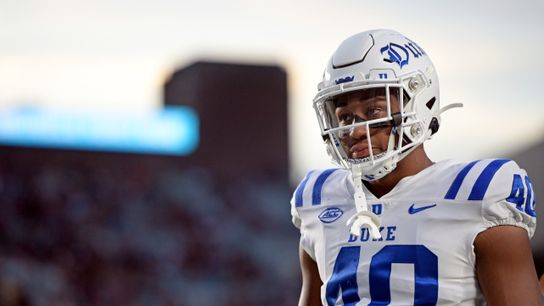First it was Diego Pavia, five seasons removed from high school, suing for an extra year (and potentially two) at Vanderbilt. Pavia did so under the argument that the National Junior College Athletic Association is a separate organization from the NCAA, and so his two years at New Mexico Military Institute shouldn't count toward his 4-year eligibility. The court agreed.
Next it was Nyzier Fourqurean. The Wisconsin cornerback began his career by playing two seasons at Grand Valley State, and in January he sued, arguing Division II seasons should not count toward FBS eligibility. The court agreed.
Now it's Corey Coley, Jr., Ryan Smith, Tre'Shon Devones, Cam Bergeron and JJ Jones. Those five players -- all of whom completed(?) their college careers in the state of North Carolina -- spent their entire careers at the FBS level, but are suing for more time.
Coley, an NC State cornerback, filed his suit back in February. Now, as reported by WRAL, Smith and Devones, and Bergeron and Jones have filed lawsuits arguing the NCAA is unfairly applying the 4-year eligibility clock for them. Smith and Devones are co-plaintiffs in one suit, and Bergeron and Jones are co-plaintiffs in another; it's not immediately clear why the suits were separated (both were filed in Durham County, N.C., by the same lawyers), the first three played at Duke and Jones played at UNC.
Smith has lettered in five seasons and appeared in 56 games from 2020-24. Devones is suing for a seventh season of college football; he played 2019-23 at Rice, then played 10 games for Duke last season. Bergeron appeared in 46 games at Duke from 2021-24, and Jones played in 47 games over that same span.
In short, the suits argue that the plaintiffs are unlikely to be drafted but could stand to make money if they return to school in 2025. Jones made $100,000 last year and could earn $500,000 if he returns, while the other three have $150,000 offers if eligible, the suit said. Taking aim at the "five years to play four" rule, the suits that due to injuries and "unfortunate circumstances" they "were otherwise not afforded the opportunity to reach their full potential in their college football careers up to this point."
If the suits go to trial, it would be interesting to hear what opportunities the veterans of 40-plus games were not afforded. Perhaps the coordinators didn't call the right plays, or they didn't get enough reps during team workouts, or the quarterbacks didn't throw to them enough. Either way, they're arguing for the legal right to a do-over, and in the process asking the court to create a permanent underclass of minor-league football players, with apparently zero regarded for opportunities not afforded to the players behind them.
A hearing is set for April 22.
